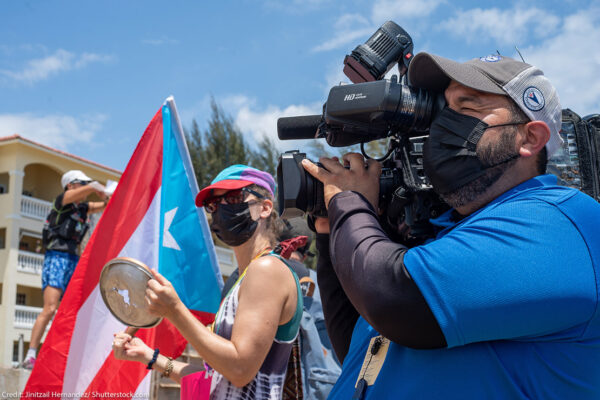ACLU of Ohio Challenges Election Sign Bans Across the State
FOR IMMEDIATE RELEASE
CLEVELAND, OH--Seeking to defend the free speech rights of voters in the crucial days before local and national elections, the American Civil Liberties Union of Ohio today filed three federal lawsuits, and will file a fourth on Monday, all growing out of municipal bans on political yard signs.
The bans, which clearly violate the First Amendment, are similar to prohibitions struck down by the United States Supreme Court in 1994, and by the Ohio Supreme Court in September 2000, the ACLU said. One of the bans carries criminal and financial penalties.
All four cases are being handled by ACLU of Ohio Legal Director Raymond Vasvari, who calls the sign restrictions "tragic and misguided. The display of a political yard sign is the only political expression in which many people ever engage. To ban these signs by calling them clutter is to neglect their traditional role in our democratic process," Vasvari said.
The ACLU of Ohio has already come to the defense of Mayfield Heights resident Lindell Riddle, who has been charged with violating the city zoning code for displaying two signs on behalf of the same candidate in his own front yard.
Riddle, who could be sentenced to jail and face thousands of dollars in fines if convicted, entered an initial appearance in Lyndhurst Municipal Court, in Cuyahoga County, on October 23, 2000. The ACLU will shortly file papers seeking to dismiss the charges against him on First Amendment grounds.
Two more cases were filed today in the United States District Court for the Southern District of Ohio, in Cincinnati. Those lawsuits, against the Villages of Mariemont and Indian Hill, both contest flat bans on the display of political yard signs. The ACLU will seek court orders against the bans in both villages, which are adjacent municipalities in Hamilton County.
On Monday, the ACLU will file suit against the Village of Doylestown, in Wayne County. That suit, which with be filed in United States District Court for the Northern District of Ohio, in Cleveland, will challenge limitations which permit the display of political signs only 18 days prior to the election. The Doylestown ban also limits citizens to displaying only one sign per candidate.
In 1994, the U.S. Supreme Court noted that residential signs have long been an important and distinct form of expression that enjoys the highest level of constitutional protection. At that time, Justice O'Connor wrote "[w]ith rare exceptions, content discrimination in regulations on the speech of private citizens on private property is presumptively impermissible."


